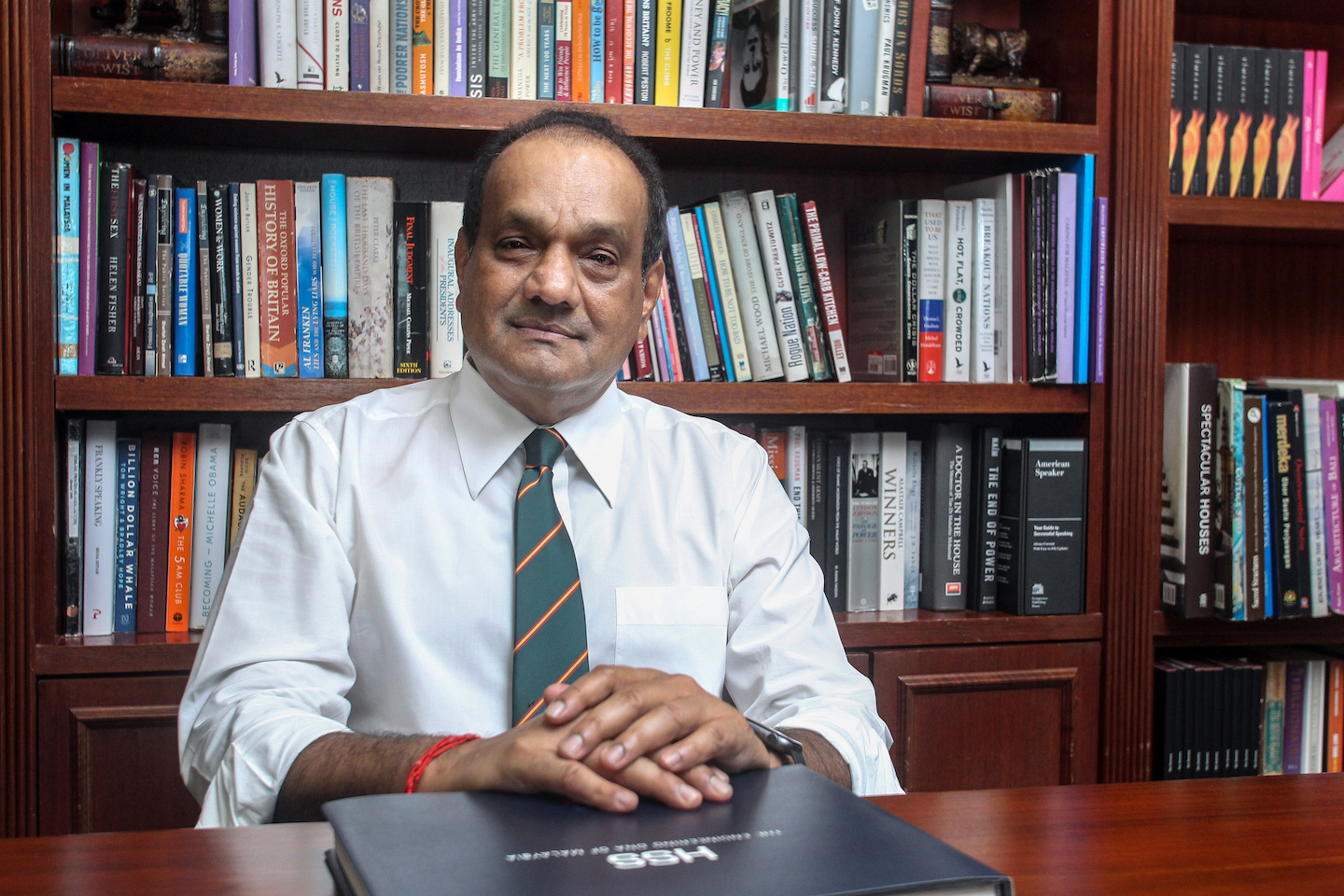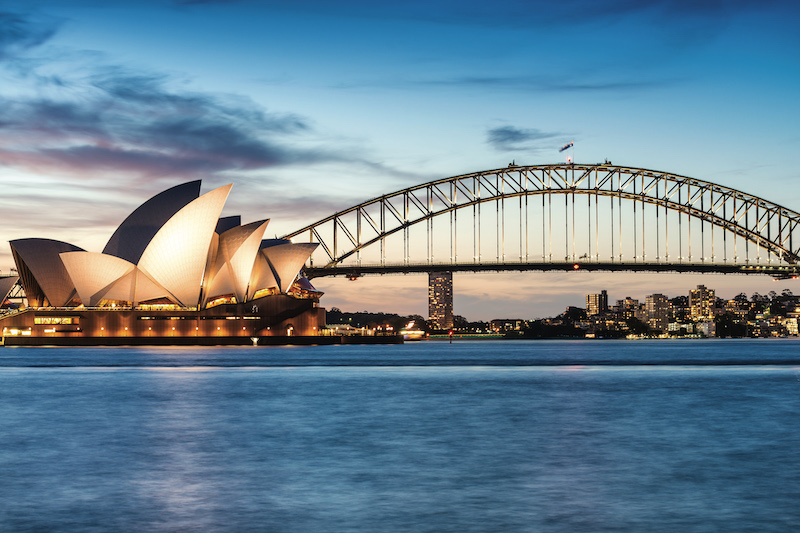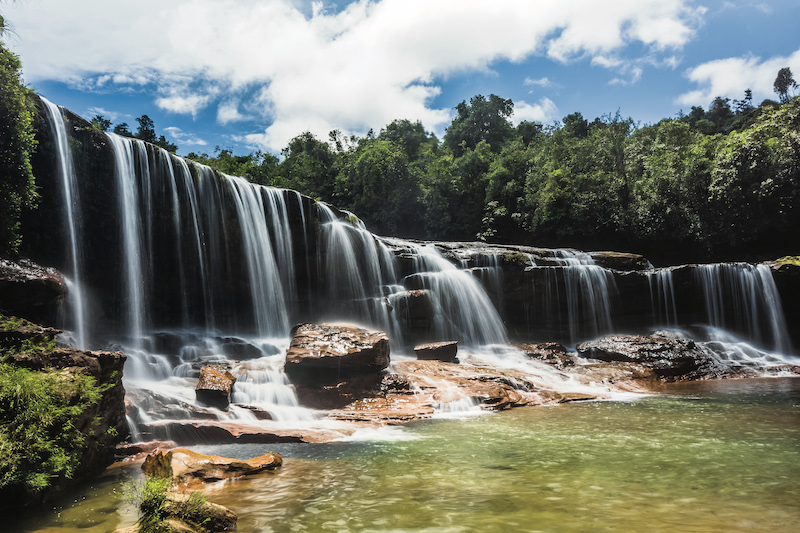
Tan Sri Kuna started HSS Engineers in 1984 (Photo: Kenny Yap/The Edge)
The co-founder and executive vice-chairman of HSS Engineers, Malaysia’s first engineering consultancy firm to be listed on Bursa Malaysia, talks about his recent election as an International Fellow of the prestigious Royal Academy of Engineering, the UK’s national academy of engineering.
Options: Congratulations on your election to the Academy, which is strictly by invitation only and where a maximum of 50 Fellows are elected each year by peer review after nomination by existing Fellows.
Tan Sri Kuna Sittampalam: It is a great honour and I only found out myself at the end of September. I am the first Malaysian to be elected ever since the Academy was established in 1976 and one of three international recipients this year, the other two being from the US and Finland.
You are in fine company, though. We see that HRH Prince Philip, the Duke of Edinburgh, is a Senior Fellow while other Fellows include the late Prof Sir Frederick Warner who led the first international inspection team to Chernobyl after the disastrous nuclear disaster as well as British aviator and turbojet engine creator, Sir Frank Whittle. Is there someone among them you particularly admire?
Definitely Sir Ove Nyquist Arup. He was a design guru who built a fantastic firm. He was the design engineer for the Sydney Opera House who made its construction possible, working on the project from start (1957) to completion (1973). His firm was also the structural engineer for the remarkable Beijing National Stadium, aka the Bird’s Nest, working together with architects Herzog & De Meuron.
48688076_xl.jpg

What led you to take up engineering?
A number of my family members work in the medical profession and I did want to do medicine as well but I studied at the Royal Military College. Mr V Chakravarthy, a lecturer there who was well known for mathematics, convinced me to do engineering. After my studies in Sheffield, I came back to Malaysia in 1979 and there was a need, especially for civil engineers. It was so different then as the country was still at the low end of professionalism and a RM50 million job was considered huge then. We started HSS in 1984, and there was a downturn the year after! It was a tough period. We were young and didn’t have much money. I even thought of dying my hair white to be taken seriously. But all we wanted was to innovate engineering to the next level.
What lessons have you gleaned from the pandemic?
This year has been tough. Fortunately, our order book is healthy. As a going concern, we are okay for the next two years. We should pick up more next year, hopefully. We go through cycles — 1998 was a tough year but we hung in there. One of the great assets we have is the loyalty of staff. There’s not much attrition and we have grown from five people to a thousand now. The trick is to keep your people motivated. The work must be interesting. At HSS, all our jobs are iconic and that’s what excites them.
To those still facing headwinds, hang in there. No entrepreneur ever had it easy! Also, not enough is said about the way Malaysia has handled itself. A lot of sacrifices were made and our frontliners did so well. I feel, internationally, Malaysia can hold its head up high, especially in terms of our healthcare and facilities. But despite this trying situation, I enjoyed the precious time I had to catch up with family, especially since my first grandchild, a granddaughter, was born a few months ago in June.
Where did you travel to just before the Movement Control Order (MCO) happened?
I was in Shanghai in December, followed by Japan twice, then lots of regional travel, especially to the Philippines. Oh, and also to India where we were chasing some big jobs.
And where do you hope to visit once things get better?
As president of the Malaysia-India Business Council (MIBC), I want more work to be done there. We actually had a delegation visit the northeast of India in November 2019, to the famous Seven Sisters: Arunachal Pradesh, Assam, Meghalaya, Manipur, Mizoram, Nagaland and Tripura. I feel that there’s much we can contribute in terms of technical direction. There’s also great tourism potential there.
143720333_l.jpg

What apps or tech devices helped you most during the MCO?
Zoom was very important but it wasn’t easy as the engineering culture tends to revolve around people who don’t talk too much. Most aren’t phone conversationalists. We are good problem-solvers but we edge towards being introverted, so a lot of engineers had to overcome Zoom meetings! I remember as a young student in the UK, whenever you were on the dancefloor and you told the girl you were dancing with that you were an engineering student, she would walk off before the song finished. We were seen as ‘square’, so we used to joke about how we should make up stories and say we were reading criminology or something more exciting instead.
Your bookshelves are very impressive but what are you reading right now?
I’ve just finished Mind Without Fear by Rajat Gupta, the first foreign-born managing director of [influential management consultancy] McKinsey & Co who’d spent time in prison for insider trading. I am also reading a lot of Indian literature right now as I want to be effective as council president of the MIBC. Reading a country’s literature really helps you understand its people.
Where do you buy your books though?
Since we can’t travel right now, it is Kinokuniya but I love visiting bookshops overseas. London is, of course, a great destination for books but I must say, India too. Whenever I am in Delhi, I must go to Bahrisons Booksellers in Khan Market.
How do you stay inspired?
Knowledge is far more readily and easily available now. Just take a look at what’s happening in terms of sustainability — solar, wind power, hydrogen … It is actually an exciting time to be alive right now.
This article first appeared on Oct 14, 2020 in The Edge Malaysia.


